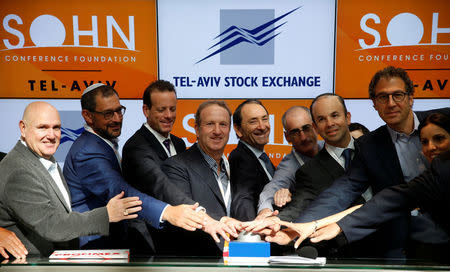No excuses for poor hedge fund performance - Lansdowne's Roden
By Tova Cohen, Steven Scheer and Maiya Keidan TEL AVIV/LONDON, LONDON (Reuters) - Hedge funds should stop making excuses for poor performance, the chairman of Lansdowne Partners said on Wednesday against a backdrop of weak average returns that have prompted some to pull their money out. "When we as managers ... have a bad year, we need to be honest and tell clients we are making mistakes," Stuart Roden, who heads up one of London's oldest hedge fund firms, said at the Sohn Investment Conference in Tel Aviv. The average hedge fund had returned slightly more than 4 percent in the year to end-September, industry tracker Hedge Fund Research (HFR) said, less than half that of the FTSE 100 <.FTSE> over the same time period. Many of Lansdowne's funds, however, have performed worse than that. Its main fund, the $10 billion Developed Markets Fund, is down 15 percent in the year to Oct. 21, performance data seen by Reuters showed. Lacklustre gains across the industry caused investors to yank $28 billion from hedge funds overall in the third quarter this year, the largest outflow in a quarter since the second quarter of 2009, HFR data showed. Those blaming the poor returns on tougher trading conditions caused by a worsening in market liquidity, or by changes in the market caused by the growth in index-tracking or other computer-driven investment strategies, were wrong, said Roden. "People talk about liquidity, machines. I think that is all complete nonsense," said Roden. He said liquidity was available to trade and that's not a reason "people are doing badly" while the rise of passive management had been a trend for a long time. "Over a 12-month period, it would be difficult to blame a machine," he told Reuters on the sidelines of the conference. Looking more broadly at the markets, Roden also said on Wednesday he was not bullish on energy prices in the long term despite crude oil prices hitting a 15-month high last week. "We are still long-term negative," he said. The Lansdowne Energy Dynamics Fund is down 6 percent in the year to Oct. 21. Roden also said Lansdowne, which has $20 billion under management, still prefers stocks over bonds and said that while the investment environment was difficult, it was not right to blame the stock market. "It might be that businesses are difficult to analyse and definitely the case that very low interest rates makes valuations kind of slightly distorted. (But) if you look at what has done badly this year and done very well this year you would have a rational response what happened." (Reporting by Tova Cohen, Steven Scheer and Maiya Keidan; writing by Maiya Keidan; editing by Mark Heinrich)

 Yahoo News
Yahoo News 

